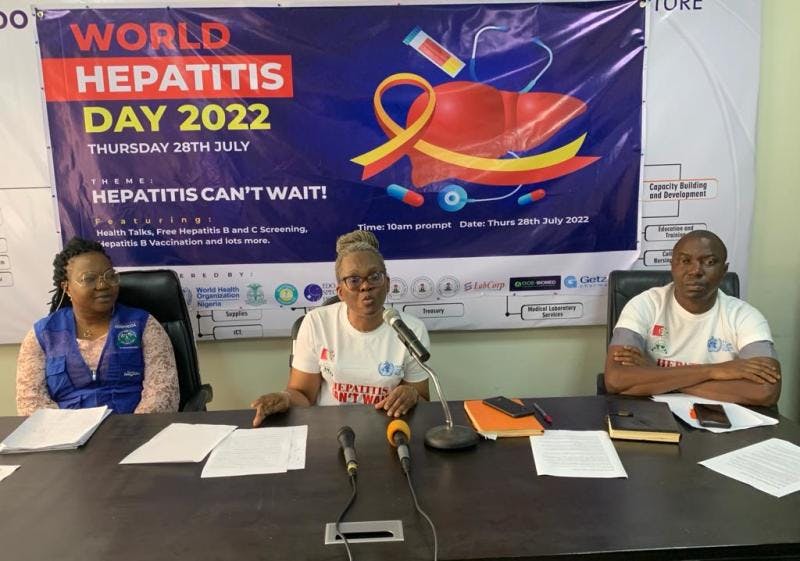…offers free screening, vaccination
The Edo State Government is leading a campaign to raise awareness amongst residents and health professionals on viral hepatitis, urging for improved sanitation, among other preventive measures to eradicate the disease responsible for inflammation of the liver that leads to severe disease and liver cancer.
The Edo State Health Commissioner, Prof. Obehi Akoria, disclosed this to journalists in Benin City, during an event to mark this year’s World Hepatitis Day, with the theme, “bringing hepatitis care closer to the people.”
As part of the event, the state also offered free hepatitis screening and vaccination for residents, which took place in Benin, Uromi and Auchi, covering the state’s three senatorial districts.
Prof. Akoria said the programme is in line with the World Health Organisation’s (WHO) mandate to bring hepatitis care closer to the primary health facilities and communities so that people have better access to treatment and care, no matter what type of hepatitis they may have.
Urging for increased action towards combating viral Hepatitis through sustained awareness and education, the Commissioner said, “The prevalence of Hepatitis in Nigeria is about an average of 11 percent. Unfortunately, 9 out of 10 people living with Hepatitis do not even know that they have the disease. When we talk about Hepatitis, we are talking about inflammation of the liver. It could be caused by bacteria or viruses, even drugs, and alcohol but most of the damages that we see are caused by viruses, some of it from alcohol.”
On the mode of transmission for the disease, Prof. Akoria noted, “We get Hepatitis B and D infections through unprotected sexual intercourse with someone who is infected, through sharing sharps with people. When we talk about sharps, we're talking about the indiscriminate use of injections. These include people who patronize patent medicine stores and pharmacies to get injections indiscriminately when we know that the licensing of these facilities do not allow them to give injectables.”
She noted that one could be infected with Hepatitis A and E through contaminated food and water, adding, “We must ensure that every individual, family, and community practices good food and water hygiene. As residents of Edo State, we're calling you to take ownership of your own health.”
Charging health professionals for safe disposal of biomedical wastes as part of efforts to end the disease in 2030, Prof. Akoria noted, “There is a concern that has been raised by the environmental health officer of the state which is the disposal of biomedical waste in our hospitals, clinics, and maternities. This is one big source of potential transmission of hepatitis B virus and other such transmissible Hepatitis like Hepatitis C and D.
“What we are appealing for is this: a standard way of disposal of these wastes is incineration; no other way, not burying or just throwing away in a dumpsite. We are all aware of how many young people are scavenging at dumpsites.”
“So, you can imagine the amount of harm we would be doing to our people if we're throwing hospital and related wastes at dumpsites. If you cannot afford an incinerator, please partner with those who have incinerators and ensure that your biomedical wastes are properly disposed of,” she added.
